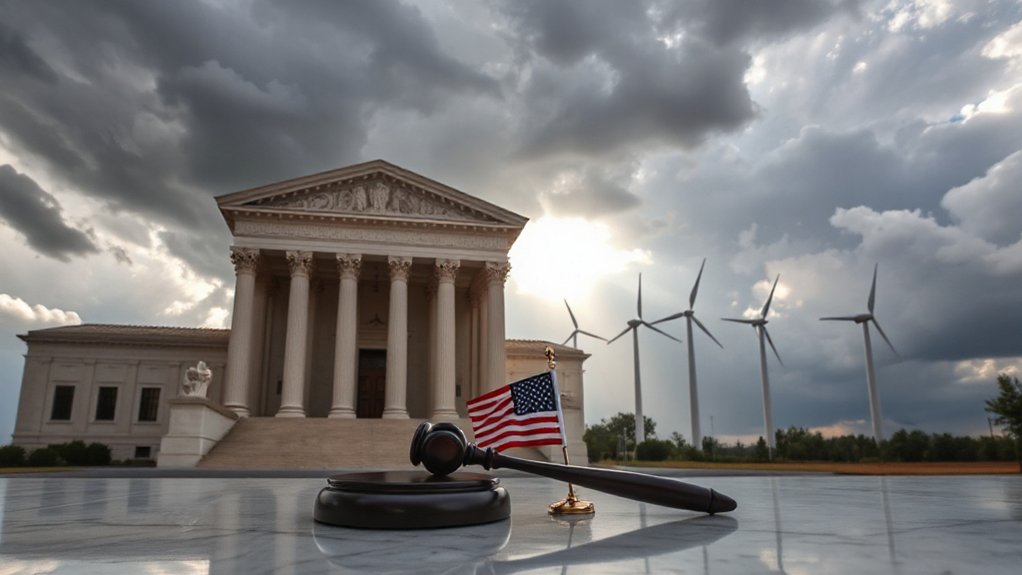A judge has dismissed Bucks County‘s lawsuit against major oil companies that claimed they deceived the public about climate change. Judge Stephen Corr threw out the case “with prejudice,” meaning the county can’t refile it.
Bucks County had sued ExxonMobil, Chevron, Shell, BP, ConocoPhillips, Phillips 66, and the American Petroleum Institute in March 2024. The lawsuit followed deadly flash floods that killed seven people in the county. It was the first case of its kind in Pennsylvania.
The county claimed these companies ran campaigns to mislead consumers about climate science and their products’ role in global warming. The word “emissions” appeared over 100 times in their complaint, while “deceptive” and “deception” were mentioned 39 times.
Judge Corr ruled that federal law, specifically the Clean Air Act, overrides state law in climate cases. His decision follows a national trend of courts rejecting similar lawsuits. The judge also criticized how county commissioners approved the lawsuit, suggesting possible Sunshine Act violations.
The filing process was described as sneaky by Judge Corr, who noted the lack of public notification or comment period.
The county had sought money for climate adaptation costs and damages. They cited research that Pennsylvania communities face $15 billion in climate-related expenses by 2040. This comes as extreme weather events become increasingly common due to rising global temperatures.
Bucks County joined a growing movement of U.S. communities suing oil and gas companies over climate deception. The lawsuit included claims of strict product liability and negligence, similar to other cases filed across the country. Similar cases in New Jersey, New York City, and Maryland have also been dismissed.
Courts increasingly reject framing these as consumer deception or public nuisance cases under state law. They cite the Supreme Court‘s unanimous 2011 ruling in American Electric Power Co. v. Connecticut, which established that federal law governs greenhouse gas emission cases.
While the Supreme Court has allowed some climate cases to proceed in lower courts, many judges believe climate policy shouldn’t be decided in local courthouses. The dismissal reinforces the legal principle that addressing climate change requires federal action rather than a patchwork of state and local lawsuits.
References
- https://www.americanbar.org/groups/environment_energy_resources/resources/trends/2025-may-june/green-light-legal-analysis-bucks-county-v-exxon-mobil/
- https://eidclimate.org/judge-dismisses-bucks-county-climate-suit-squashing-activists-cherry-on-top/
- https://climateintegrity.org/news/view/bucks-county-pa-sues-big-oil-for-climate-deception
- https://climatecasechart.com/wp-content/uploads/case-documents/2024/20240325_docket-2024-01836-0000_complaint.pdf
- https://delawarevalleyjournal.com/judge-tosses-bucks-county-climate-lawsuit-with-prejudice/









